Navigating the complexities of shipping goods from China to France can be a daunting task for businesses. With multiple shipping methods, customs regulations, and cost considerations, it’s essential to have a solid understanding of the logistics landscape. In this comprehensive guide, we will explore the key factors that influence shipping costs, including effective strategies to reduce expenses and optimize your shipping process. We’ll also delve into the importance of customs compliance and the critical role of freight forwarders in facilitating smooth international transactions. Whether you’re a seasoned importer or new to international trade, this guide will equip you with valuable insights to enhance your shipping operations and ensure your goods arrive promptly and efficiently.
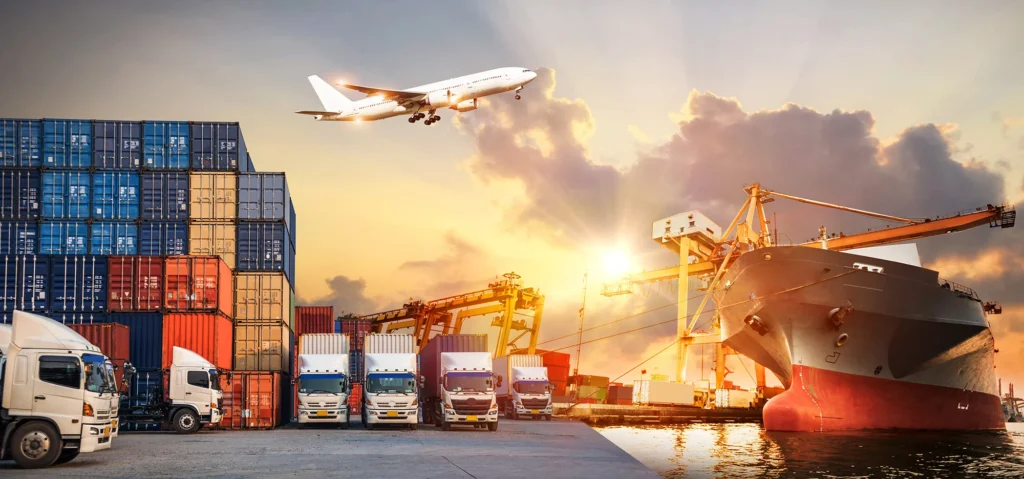
1. Understanding Freight Forwarding
Freight forwarding is a service provided by companies that specialize in organizing the transportation of goods on behalf of other businesses or individuals. This process involves the coordination of various logistics activities, including the arrangement of shipping, handling documentation, and navigating customs regulations. Freight forwarders play a crucial role in ensuring that shipments reach their destination efficiently and cost-effectively. They act as intermediaries between shippers and carriers, helping to streamline the complex process of international trade.
Role of Freight Forwarders in International Shipping
Freight forwarders serve as a vital link in the supply chain, offering expertise that helps businesses navigate the complexities of international shipping. Their responsibilities typically include:
- Negotiating Freight Rates: Freight forwarders leverage their industry connections to negotiate competitive rates with carriers, ensuring cost-effective shipping options for their clients.
- Customs Clearance: They assist in the preparation and submission of necessary documentation for customs clearance, helping to avoid delays and ensuring compliance with regulations.
- Cargo Insurance: Freight forwarders often provide options for insurance services, safeguarding shipments against loss or damage during transit.
- Tracking Shipments: They offer real-time tracking of shipments, providing clients with visibility and peace of mind throughout the shipping process.
- Advisory Services: Freight forwarders provide valuable advice on shipping routes, methods, and any potential challenges that may arise during transportation.
For businesses looking to import goods from China to France, understanding the role of freight forwarders is essential in ensuring a smooth and efficient shipping process.
2. Key Shipping Methods from China to France
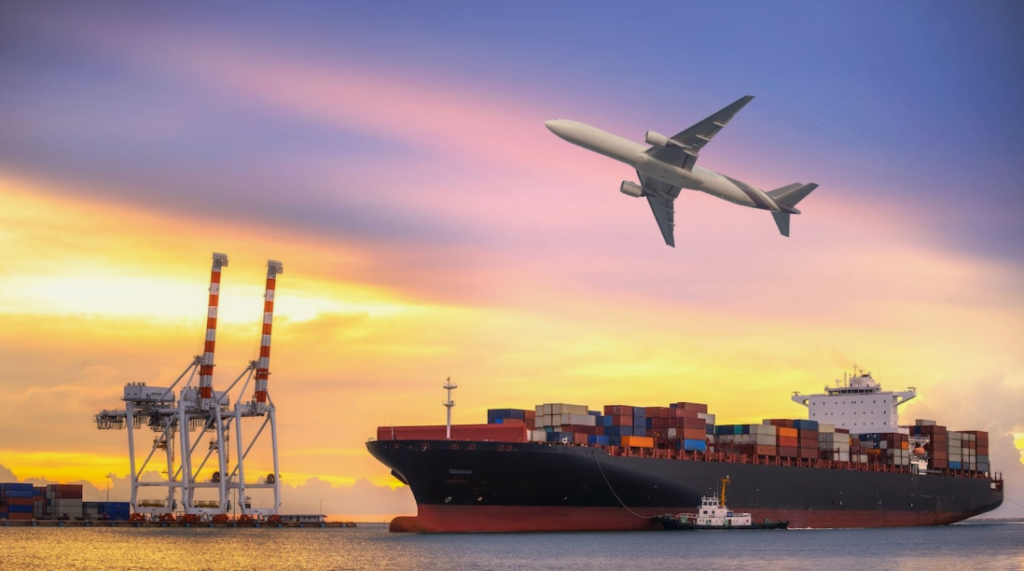
When shipping goods from China to France, businesses can choose from several shipping methods, each with its unique advantages and considerations.The primary shipping methods available include Air Freight, Sea Freight, Rail Freight, and Express Shipping. Each method varies in terms of cost, transit time, and suitability based on the type of cargo being shipped.
Air Freight
Air Freight is the fastest shipping method, making it ideal for time-sensitive deliveries. This method is particularly suitable for high-value or perishable goods that need to reach their destination quickly. While air freight is generally more expensive than other shipping options, its speed can often justify the higher cost. Businesses can benefit from quicker turnaround times, which can be crucial in competitive markets.
Sea Freight
Sea Freight is one of the most cost-effective methods for transporting large volumes of goods over long distances. This method is ideal for bulk shipments or lower-value items where transit time is less critical. Although sea freight typically takes longer than air freight, it is the preferred choice for many businesses due to its affordability. Additionally, shipping via ocean freight allows for larger cargo capacities, which can significantly reduce overall shipping costs.
For more information on ocean freight services, visit our Ocean Freight page.
Rail Freight
Rail Freight is another viable option for shipping goods from China to France, particularly for landlocked regions or when shipping in bulk. This method offers a balance between cost and speed, often providing faster transit times than sea freight while being more economical than air freight. Rail freight is especially advantageous for shipping goods between manufacturing hubs and major distribution points in Europe.
Express Shipping
Express Shipping is designed for expedited deliveries, offering rapid transit times for urgent shipments. This method combines air and ground transportation to ensure that goods arrive quickly at their destination. While express shipping is the most expensive option, it is invaluable for businesses that require immediate delivery of their products.
Read More:
- Shipping From China To Netherlands
- Shipping From China To Spain
- Shipping From China To Germany
- Shipping From China To France
- Shipping From China to Italy
- Shipping From China To Poland
- Shipping From China to United Kingdom
3. Factors Influencing Shipping Costs
When calculating shipping costs for transporting goods from China to France, several factors come into play. Understanding these elements can help businesses optimize their logistics expenses and make informed shipping decisions.
Breakdown of Cost Components
Shipping costs are influenced by various components, including:
- Weight and Dimensions of Cargo: The physical characteristics of the cargo, such as weight and volume, significantly impact shipping costs. Most carriers charge based on either the actual weight or the dimensional weight (volumetric weight), whichever is greater. For example, lighter but bulkier items may incur higher charges due to their size. It is crucial for shippers to provide accurate measurements to avoid unexpected costs.
- Shipping Method Selected: Different shipping methods incur varying costs. Air Freight is generally more expensive than Sea Freight due to its speed, while Rail Freight offers a middle-ground option. Express Shipping, while the quickest, is also the most costly. Businesses must weigh their urgency against their budget when selecting a shipping method.
- Distance and Route Specifics: The distance between the origin and destination, as well as the chosen shipping route, can influence costs. Longer distances typically lead to higher shipping fees. Additionally, routes that involve multiple stops or complex logistics may incur extra charges. It’s advisable for businesses to consult with a freight forwarder to determine the most efficient route that aligns with their budget.
Seasonal Variations in Shipping Rates
Shipping rates can fluctuate based on seasonal demand. For instance, during peak seasons such as the holiday shopping period, rates for both air and ocean freight may increase significantly due to higher demand for cargo space. Businesses should plan their shipments accordingly, taking into account potential cost increases during busy seasons. Monitoring market trends and working with a freight forwarder can help shippers secure favorable rates throughout the year.
4. Shipping Timeframes
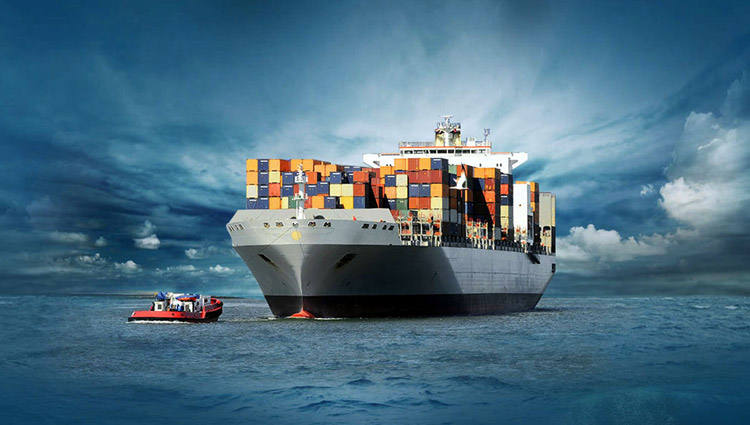
Estimating transit times is crucial for planning shipments effectively. Different shipping methods come with varying delivery timelines, which can significantly affect inventory management and customer satisfaction.
Air Freight (4-6 Days)
Air Freight is the fastest shipping option available, typically taking only 4-6 days for transit. This method is ideal for time-sensitive shipments, such as electronics or perishable goods. However, while air freight significantly reduces delivery times, it is essential to note that customs clearance can also impact overall transit time.
Sea Freight (30-45 Days)
Sea Freight usually takes 30-45 days for shipments from China to France. This method is ideal for bulk shipments and lower-value items where transit time is less critical. While sea freight is more economical, shippers must account for potential delays caused by port congestion or unfavorable weather conditions.
Rail Freight (25-30 Days)
Rail Freight offers an attractive alternative, with estimated transit times of around 25-30 days. It provides a balance of speed and cost, making it a great option for shippers looking to transport goods overland through Europe. Rail freight is particularly beneficial for large quantities of goods that need to be transported quickly, without incurring the higher costs of air freight.
Express Shipping (2-3 Days)
Express Shipping is the ideal choice for urgent shipments, with transit times of just 2-3 days. This method combines air and ground transport to expedite delivery, making it invaluable for businesses that require fast turnaround times for critical goods. However, it is essential to factor in the higher costs associated with express shipping when making logistical decisions.
5. Customs Clearance Process
Navigating the customs clearance process is a vital aspect of shipping goods from China to France. Properly managing this process ensures timely and compliant delivery of shipments, minimizing the risk of delays or additional costs.
Importance of Customs Compliance
Customs compliance is essential for international shipping, as it ensures that shipments adhere to the regulations and laws of both the exporting and importing countries. Non-compliance can result in heavy fines, confiscation of goods, and considerable delays in delivery. By understanding the customs regulations specific to both China and France, businesses can avoid potential pitfalls and facilitate a smoother shipping process. Customs compliance not only protects the interests of the shipper but also helps maintain a positive relationship with customs authorities.
Required Documentation for Shipping from China to France
Accurate documentation is crucial for successful customs clearance. The following documents are typically required when shipping goods from China to France:
- Commercial Invoice: This document details the transaction between the buyer and seller, including product descriptions, quantities, prices, and terms of sale. It serves as a critical reference for customs authorities.
- Packing List: This document outlines the contents of each shipment, providing details such as the weight, dimensions, and packaging type. It helps customs officials verify the cargo and assess any applicable duties.
- Bill of Lading (BOL): The BOL serves as a contract between the shipper and the carrier, detailing the terms of transport. It is essential for both air and sea freight shipments.
- Certificate of Origin: This document verifies the country in which the goods were produced. It may be required to determine applicable tariffs or to comply with trade agreements.
- Import License: Depending on the type of goods being imported, an import license may be necessary. This document grants permission from the French authorities to bring specific goods into the country.
Understanding and preparing these documents in advance can significantly streamline the customs clearance process and reduce the likelihood of delays.
6. How to Choose the Right Freight Forwarder
Selecting the right freight forwarder is crucial for successful shipping operations, particularly when transporting goods from China to France. Here are some key criteria to consider during your selection process:
Experience with China-France Routes
A freight forwarder with substantial experience in China-France routes will have a deep understanding of the logistics challenges specific to this corridor. They will be familiar with the nuances of customs procedures, shipping regulations, and the best practices for navigating the complexities of international transport. Experienced freight forwarders can provide valuable insights and advice, ensuring that your shipments are handled efficiently.
Service Offerings and Network
Evaluate the service offerings of potential freight forwarders. A comprehensive logistics service provider should offer various shipping options, including Air Freight, Sea Freight, and Express Shipping. Additionally, consider whether they provide value-added services such as warehouse services, insurance, and customs clearance. A well-established network of global partners and carriers is essential for ensuring timely and reliable delivery.
Dantful International Logistics is a highly professional, cost-effective, and high-quality one-stop international logistics service provider for global traders, specializing in shipping goods from China to various destinations, including France.
Customer Service Reputation
Customer service is a critical aspect of choosing a freight forwarder. A reputable freight forwarder should be responsive, transparent, and willing to address any concerns or inquiries promptly. Look for reviews and testimonials from previous clients to gauge their experiences with the forwarder. A strong customer service reputation can significantly enhance the shipping experience, ensuring that issues are resolved quickly and effectively.
Selecting the right freight forwarder requires careful consideration of experience, service offerings, and customer service reputation. By taking the time to evaluate these factors, businesses can find a reliable partner to facilitate seamless shipping operations from China to France. For optimal solutions, consider partnering with Dantful International Logistics to ensure your goods are transported efficiently and with confidence.
Dantful International Logistics Services:
- Dantful Ocean Freight Services
- Air Freight From China
- Amazon FBA Freight Forwarding
- WAREHOUSE Services
- One-Stop Customs Clearance Solution
- Cargo Insurance Services in China
- DDP Shipping Services By Dantful Logistics
- Out of Gauge Cargo Transportation Shipping Services
7. Tips for Reducing Shipping Costs
When managing logistics and shipping operations, finding ways to reduce costs without compromising service quality is essential. Below are several strategies that businesses can employ to optimize their shipping expenses when importing goods from China to France.
Strategies to Optimize Shipping Expenses
- Compare Shipping Rates: Always compare quotes from multiple freight forwarders to find the best rates. Each forwarder may have different agreements with carriers, which can lead to significant variations in shipping costs.
- Negotiate Rates: If you are a frequent shipper or have regular shipping volumes, don’t hesitate to negotiate rates with your freight forwarder. Many freight forwarders are open to discussions about discounts based on shipping volume.
- Choose the Right Shipping Method: Selecting the appropriate shipping method can greatly affect costs. For example, if time is not a constraint, opting for Sea Freight instead of Air Freight can lead to substantial savings.
- Review and Adjust Shipping Frequencies: Evaluate your shipping schedules to find opportunities for less frequent but larger shipments, which can reduce overall shipping expenses.
Importance of Consolidating Shipments
Consolidating shipments is a highly effective method for reducing shipping costs. By combining multiple smaller shipments into a single larger shipment, businesses can benefit from lower freight rates. This approach minimizes space wastage on transport vehicles and maximizes the efficiency of shipping capacities. Additionally, consolidated shipments often incur lower handling fees, contributing to overall savings.
For example, rather than shipping several small packages individually, consider grouping them together. Not only does this reduce costs, but it can also simplify the logistics process and improve delivery times.
Utilizing Technology for Tracking and Management
In today’s digital age, leveraging technology can significantly optimize shipping operations. Various software solutions are available to help businesses track shipments, manage logistics, and analyze shipping data.
- Tracking Systems: Implementing advanced tracking systems allows businesses to monitor their shipments in real-time, providing visibility into the shipping process. This transparency can help identify any delays or issues proactively, allowing for timely intervention.
- Logistics Management Software: Utilizing logistics management software can help streamline operations by automating tasks such as shipment scheduling, invoice processing, and reporting. These tools can reveal insights into shipping patterns and costs, enabling businesses to make data-driven decisions.
- Data Analytics: Analyzing shipping data can uncover trends and opportunities for cost reduction. By evaluating historical shipping costs and patterns, businesses can identify areas where efficiencies can be improved.
FAQs
- What are the most cost-effective shipping methods from China to France?
- The most cost-effective methods are typically Sea Freight for larger shipments and Rail Freight for medium-sized shipments. Air Freight and Express Shipping are faster but generally more expensive.
- How can I ensure customs compliance for my shipments?
- To ensure customs compliance, ensure that all necessary documentation is accurately prepared, including commercial invoices and packing lists. It’s also wise to work with a knowledgeable freight forwarder to navigate customs regulations.
- What factors influence shipping costs from China to France?
- Key factors include the weight and dimensions of cargo, the shipping method selected, distance and route specifics, and seasonal variations in shipping rates.
- How can I track my shipments?
- Most freight forwarders provide tracking services that allow you to monitor your shipments in real-time. Consider utilizing logistics management software for enhanced tracking capabilities.
- What are the common challenges during customs clearance?
- Common challenges include misclassification of goods, insufficient documentation, regulatory changes, and customs inspections. Being prepared and well-informed can mitigate these issues.

Young Chiu is a seasoned logistics expert with over 15 years of experience in international freight forwarding and supply chain management. As CEO of Dantful International Logistics, Young is dedicated to providing valuable insights and practical advice to businesses navigating the complexities of global shipping.

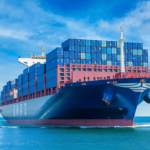



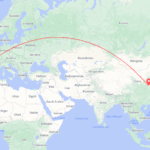





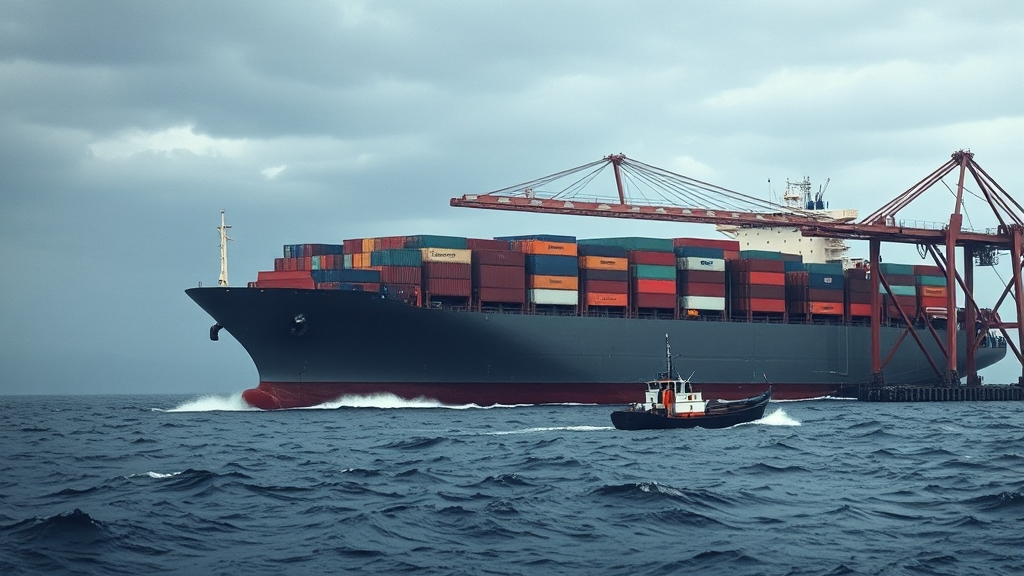
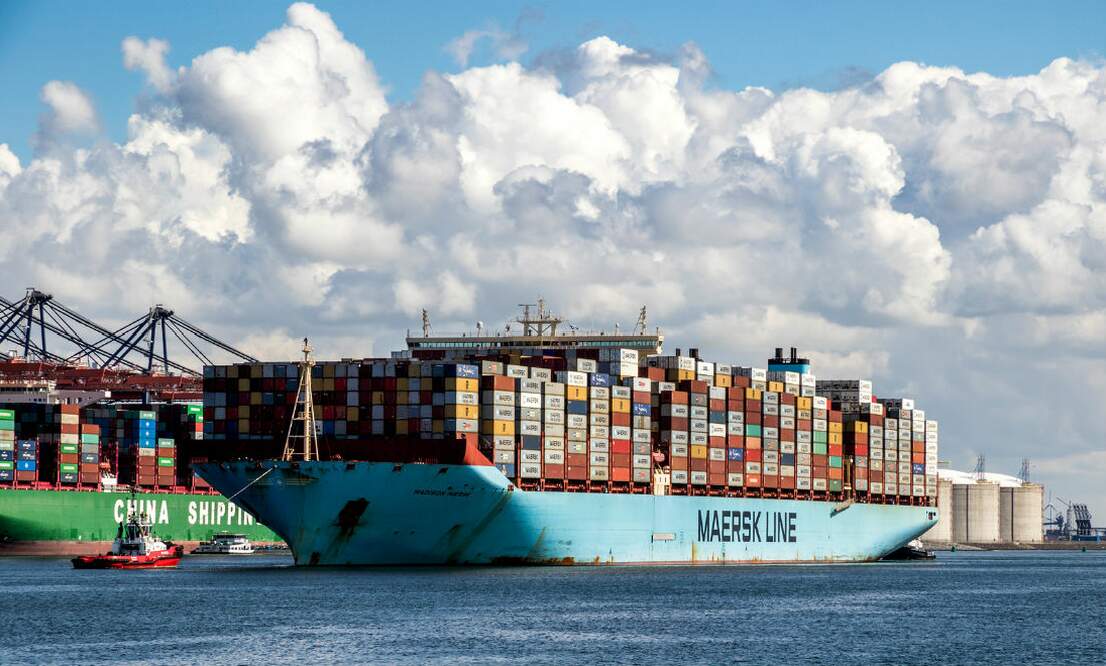
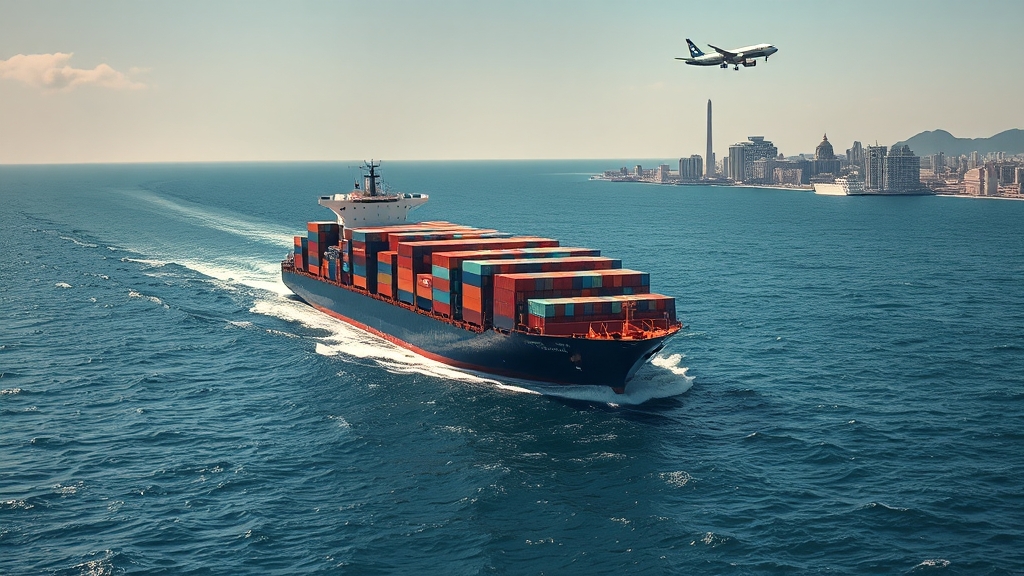
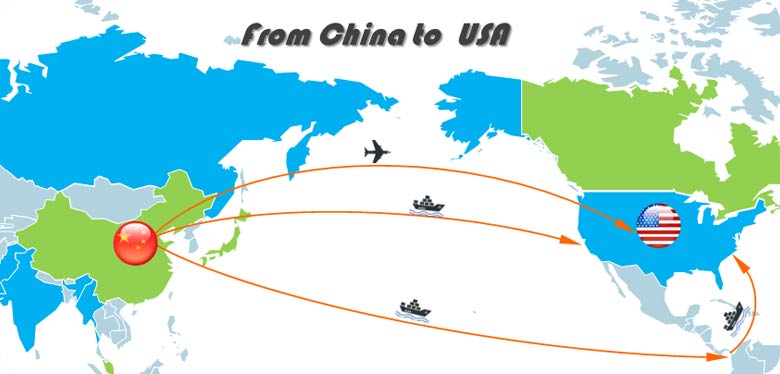
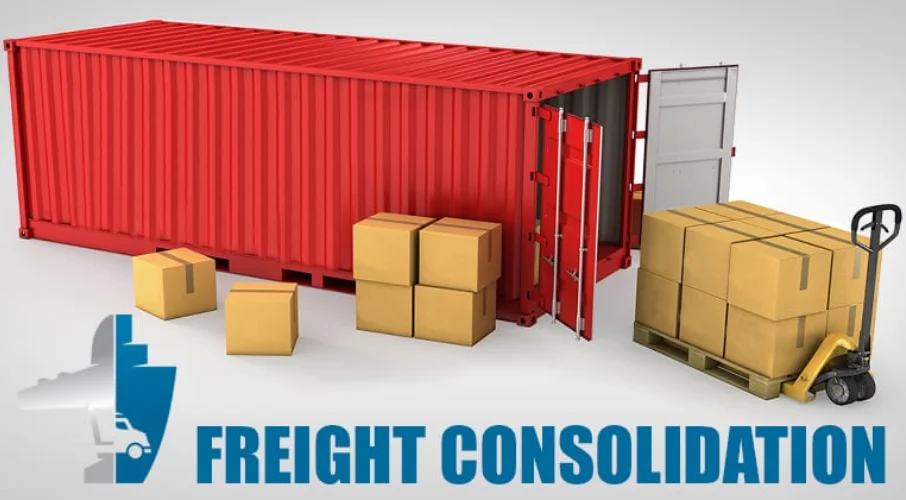





 Afrikaans
Afrikaans Shqip
Shqip አማርኛ
አማርኛ العربية
العربية Հայերեն
Հայերեն Azərbaycan dili
Azərbaycan dili Euskara
Euskara Беларуская мова
Беларуская мова বাংলা
বাংলা Bosanski
Bosanski Български
Български Català
Català Cebuano
Cebuano Chichewa
Chichewa 简体中文
简体中文 繁體中文
繁體中文 Corsu
Corsu Hrvatski
Hrvatski Čeština
Čeština Dansk
Dansk Nederlands
Nederlands English
English Esperanto
Esperanto Eesti
Eesti Filipino
Filipino Suomi
Suomi Français
Français Galego
Galego ქართული
ქართული Deutsch
Deutsch Ελληνικά
Ελληνικά Kreyol ayisyen
Kreyol ayisyen Harshen Hausa
Harshen Hausa Ōlelo Hawaiʻi
Ōlelo Hawaiʻi עִבְרִית
עִבְרִית हिन्दी
हिन्दी Hmong
Hmong Magyar
Magyar Íslenska
Íslenska Igbo
Igbo Bahasa Indonesia
Bahasa Indonesia Gaeilge
Gaeilge Italiano
Italiano 日本語
日本語 Basa Jawa
Basa Jawa ಕನ್ನಡ
ಕನ್ನಡ Қазақ тілі
Қазақ тілі ភាសាខ្មែរ
ភាសាខ្មែរ 한국어
한국어 كوردی
كوردی Кыргызча
Кыргызча ພາສາລາວ
ພາສາລາວ Latin
Latin Latviešu valoda
Latviešu valoda Lietuvių kalba
Lietuvių kalba Lëtzebuergesch
Lëtzebuergesch Македонски јазик
Македонски јазик Malagasy
Malagasy Bahasa Melayu
Bahasa Melayu മലയാളം
മലയാളം Maltese
Maltese Te Reo Māori
Te Reo Māori मराठी
मराठी Монгол
Монгол ဗမာစာ
ဗမာစာ नेपाली
नेपाली Norsk bokmål
Norsk bokmål پښتو
پښتو فارسی
فارسی Polski
Polski Português
Português ਪੰਜਾਬੀ
ਪੰਜਾਬੀ Română
Română Русский
Русский Samoan
Samoan Gàidhlig
Gàidhlig Српски језик
Српски језик Sesotho
Sesotho Shona
Shona سنڌي
سنڌي සිංහල
සිංහල Slovenčina
Slovenčina Slovenščina
Slovenščina Afsoomaali
Afsoomaali Español
Español Basa Sunda
Basa Sunda Kiswahili
Kiswahili Svenska
Svenska Тоҷикӣ
Тоҷикӣ தமிழ்
தமிழ் తెలుగు
తెలుగు ไทย
ไทย Türkçe
Türkçe Українська
Українська اردو
اردو O‘zbekcha
O‘zbekcha Tiếng Việt
Tiếng Việt Cymraeg
Cymraeg יידיש
יידיש Yorùbá
Yorùbá Zulu
Zulu